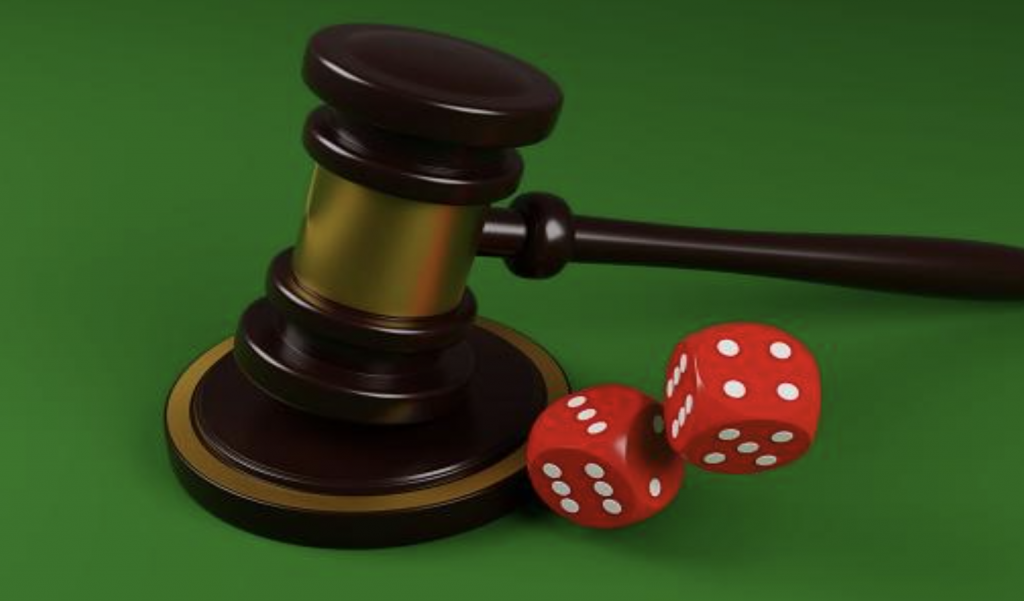Canada is a one-of-a-kind combination of natural glamour and urban modernism. From the freezing tundra of Nunavut to the concrete and steel towers of Toronto, the world’s second-largest country by total size has plenty to be proud of. This feeling of national pride extends to their thriving gaming sector and the wagering legislation enacted to keep it operating smoothly when using free spins no deposit bonuses.
While other countries across the world swing dramatically from one end to the other on the issue of gambling, Canadian citizens and policymakers have managed to maintain a level-headed stance despite the appeal of quick money at casinos. In most circumstances, the laws remain adaptable while always keeping the majority’s welfare in mind.
Gambling Is Illegal in Canada
Several decades ago, organised crime dominated illicit gaming in Canada. And, because most types of gambling were illegal in the United States before 1970, these unsavoury characters had plenty of opportunities to ply their trade. That gradually began to alter in 1970, when formerly illegal gambling activities were made available to the general public. Another significant step forward occurred in 1985 when regions and jurisdictions were granted authority over enterprises like online slots, charitable gambling, and lotteries.
While current organised crime figures continue to rely on illicit gambling as a key source of real money, a more innovative generation of individual thieves has adopted the activity. In any scenario, these dishonest individuals defraud customers, rig athletic events, and fail to pay their due share of taxes. As a result, the strain on regional and provincial enforcement agencies, as well as national institutions like the Canadian Security Intelligence Service and the Royal Canadian Mounted Police, has increased.
The Canadian Criminal Code addresses a wide range of illicit gambling offenses, however below are the most popular:
- Section 201 – Covers a wide range of violations, the most prevalent of which is maintaining a common gambling or betting house.
- Section 202 – Addresses unlawful gambling, bookmaking, and pool selling.
- Section 206 – Lotteries and other plays of chance violations.
- Section 209 – Deceit in chance games with the goal of swindling either the client or the house.
Manitoba Gambling Regulations
Gambling is permitted in this western Canadian province, and the Liquor and Gaming Authority of Manitoba regulates it. Within the province’s borders, residents and tourists can partake in the following legal kinds of gambling:
- Gambling over the internet. Following the success of British Columbia’s government-owned gambling website, Manitoba embraced a similar economic model in 2013. While offshore operators provide over 1,000 unregulated casinos and sportsbooks, PlayNow Manitoba is the only one within the province’s boundaries.
- Casinos. Manitoba features both government-owned and First Nations-owned casinos. The provincial government owns both of Winnipeg’s of these facilities.
- Lottery. Lottery tickets and scratch-off cards are available through the Western Canada Lottery Corporation. These are available online or at licensed sellers such as convenience shops.
British Columbia
The British Columbia Lottery Corporation has been providing gaming to British Columbia citizens for more than three decades, and the various gaming alternatives have grown with time. Here are the authorised forms of gambling accessible in British Columbia and nearby US states like Oregon and Washington. There are approximately 15 casinos in the region, with just one owned by the First Nations. Hard Rock Casino Vancouver has the most gaming space with:
- 1,000 slots;
- 70 table games;
- A poker room;
- 8 baccarat tables in an elevated room;
- Gambling on the internet.
PlayNow, controlled by the British Columbia Lottery Corporation, is the only regulated and legal gaming site in BC. The site debuted in 2004 and offers sports wagering, lottery, bingo, blackjack, and dollar deposit casino activities.
Tickets for sports betting can be purchased from convenience shops and other authorised sites. Players must gamble on at least two plays to obtain payment, and most events demand a 100% winning rate.
Prince Edward Island
Prince Edward Island is Canada’s smallest province, consisting of one large island and 231 smaller ones. Since its inception in 1976, the Prince Edward Island Lotteries Commission has been in charge of gambling in the region. Despite having one of the poorest wagering rates in the country, the province offers the following sorts of gaming:
- Betting on sports. Anyone aged 19 and over can use the Pro-Line service to place parlay bets on numerous sporting events. Tickets can be acquired over the internet or in person at authorised land-based merchants.
- Gambling over the internet. Offshore wagering is unregulated, yet it is still accessible to any PEI citizen who can find the best online casino that would accept their money.
- Casino. The state’s sole licensed casino is a “racino,” which blends harness racing with casino-style gambling. Anyone over nineteen can participate in blackjack, poker, and slots.
Newfoundland and Labrador Gambling Regulations
Newfoundland and Labrador, located in eastern Canada, allow most gaming inside its boundaries. Land-based casinos are the most obvious exception. However, First Nations groups do have the ability to build their own facilities. The province now allows the following types of gambling:
- Gaming for charity. The Department of Government Services oversees charitable gambling, like raffles and bingo, throughout the province, and over 3,800 charitable cards are currently in operation.
- Terminals for video lottery. More than 2,000 of these devices, controlled by the Atlantic Lottery Corporation, are available at 500 age-restricted stores across the province. The basic payout percentage is set at 80%, with a maximum payout rate of 93% on the most generous machines.
- Gaming on the internet. Because land-based casinos are still prohibited in the province, many residents resort to the Internet for their gambling fix.
While there are no sportsbooks or online casinos in Newfoundland, there seem to be around 1,000 overseas sites that allow players.
Conclusion
Canada is a varied country that encourages people to celebrate their unique cultural, religious, and ethnic heritage. The same can be true of their gambling scene since a diverse variety of gaming activities are authorised in all ten provinces and three regions. The most frequent are charitable and internet gambling, with the former generating much-needed cash for non-profit groups such as churches.
The latter is present all over the country with few rules, which distinguishes Canada from the tightly regulated Internet gambling environment of the United States. Casinos are also common and legal all across the country, particularly in southern provinces like Ontario and British Columbia. These range in size and shape, from those held by First Nations groups to those run by the Canadian authorities. Casinos near the US border attract a sizable number of foreign visitors in addition to locals.








